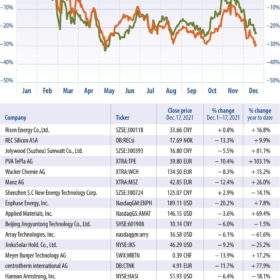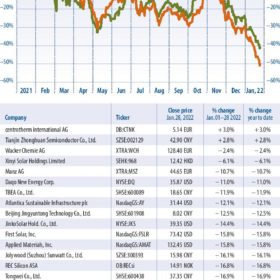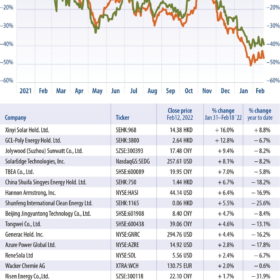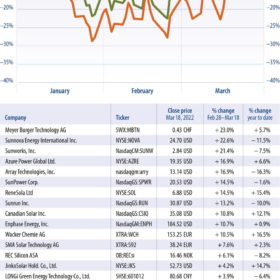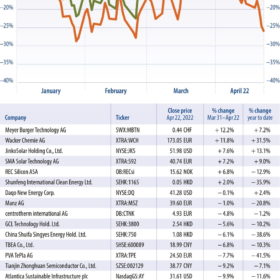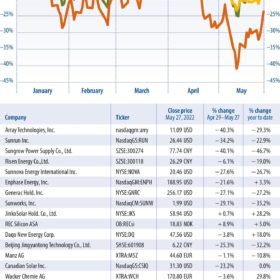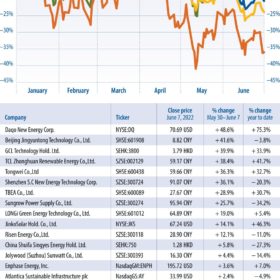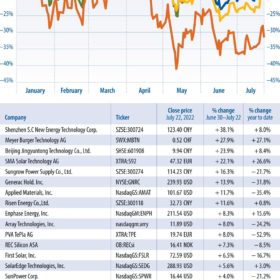Surfing the next investment wave
In October 2022, European gas prices went negative. While negative price events can be expected periodically, the occurrence was remarkable, as it was preceeded by record highs only months earlier as a result of Russia’s invasion of Ukraine. Energy demand destruction, businesses and households reducing their gas consumption and unusually warm temperatures played a role, […]
Solar resilience in 2022
At year’s end, pv magazine editor-in-chief Jonathan Gifford reflects on solar power’s ability to deliver on the urgent demands of the energy ‘trilemma.’
Policy headwinds
Solar stocks underperformed broader markets in December, writes Jesse Pichel of ROTH Capital Partners. The Invesco Solar ETF decreased 8.5%, while the S&P 500 increased by 2.4%, and the Dow Jones Industrial Average increased by 3.9%.
Between a rock and a hard place
In the month of January, the Invesco Solar ETF, an ETF that tracks the MAC Global Solar Energy Index, underperformed relative to the S&P 500 and Dow Jones Industrial. Delays to the Build Back Better Act in the United States, coupled with ongoing concerns around availability and the PV supply chain, led to a significant pull-back, writes Jesse Pichel of ROTH Capital Partners.
Demanding developments
In February, the Invesco Solar ETF (TAN) decreased 4.6%, while the S&P 500 fell by 3.7% and the Dow Jones Industrial Average declined by 3%, writes Jesse Pichel of ROTH Capital Partners. The slip is due to high polysilicon prices, trade friction, and a call for increased policy support from European developers.
‘Freedom Energy’ surge
In March, the Invesco Solar ETF, an exchange-traded fund that tracks the MAC Global Solar Energy Index, outperformed relative to the S&P 500 and Dow Jones Industrial, writes Jesse Pichel of ROTH Capital Partners.
Shock and challenge
In the month of April, the Invesco Solar ETF underperformed relative to the S&P 500 and Dow Jones Industrial Average, registering a 14.5% decline. Jesse Pichel of ROTH Capital Partners says this is primarily due to the impacts of the latest anti-circumvention case in the United States.
Awaiting intervention
In May, the Invesco Solar ETF (TAN) jumped 11.0%, while the S&P 500 increased by 0.6% and the Dow Jones Industrial Average rose by 0.7%. Jesse Pichel of ROTH Capital Partners sees the impacts of the current anti-circumvention case in the United States as the main reason why solar outperformed broader markets.
Solar weathers the storm
The Invesco Solar ETF, an exchange-traded fund that tracks the MAC Global Solar Energy Index, outperformed the S&P 500 and the Dow Jones Industrial Average in June, writes Jesse Pichel of ROTH Capital Partners.
Trickle down trouble
In the month of July, the Invesco Solar ETF, an ETF that tracks the MAC Global Solar Energy Index, underperformed relative to the S&P 500 and Dow Jones Industrial. Jesse Pichel of ROTH Capital Partners puts this largely down to high polysilicon prices.


